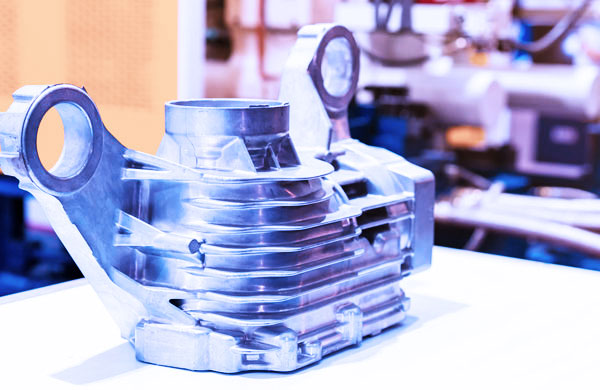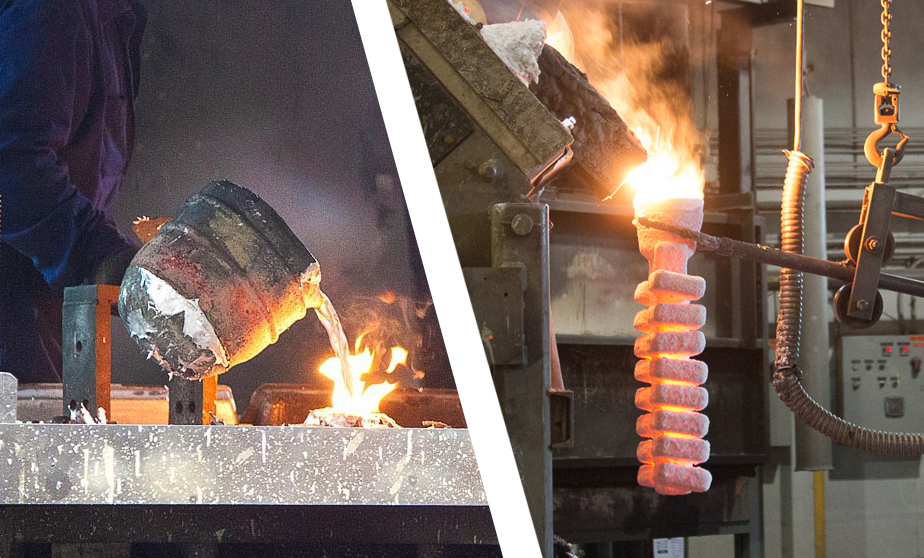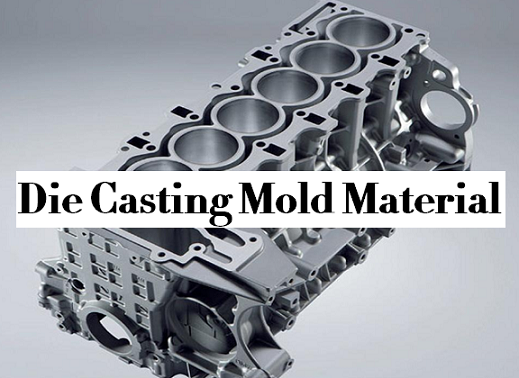Stahl Specialty Company Can Be Fun For Everyone
Stahl Specialty Company Can Be Fun For Everyone
Blog Article
All about Stahl Specialty Company
Table of ContentsGetting The Stahl Specialty Company To WorkThe 7-Minute Rule for Stahl Specialty CompanySome Of Stahl Specialty CompanyThe Best Strategy To Use For Stahl Specialty CompanyThe Single Strategy To Use For Stahl Specialty CompanySome Ideas on Stahl Specialty Company You Should Know

If you're developing a steel item, you've likely taken into consideration using light weight aluminum as the base product. It has a high strength-to-weight proportion, great corrosion resistance, good formability, and visual appeal. These variables have actually resulted in its enhanced appeal in recent years. Pure light weight aluminum has limited applications, so it is typically combined with various other aspects, such as silicon, magnesium, and manganese to form alloys.
Different components and amounts create a large variety of preferable physical and chemical residential or commercial properties. And the Aluminum Organization (AA), based in North America, has actually created requirements that manage aluminum alloys' composition, properties, and language. There are 2 types of light weight aluminum alloys functioned and cast. Foundry employees create these alloy key ins various means, which substantially affects their characteristics.
7 Simple Techniques For Stahl Specialty Company
Cast aluminum alloys are made by thawing pure aluminum and combining it with other steels while in fluid type. Then the mix is poured into a sand, pass away, or financial investment mold. After solidification, the steel is gotten rid of from its mold. At this phase, it remains in either its last form or as a billet or ingot for more processing.

160.0 stands for a cast with a minimum of 99.60% aluminum. The 4th number, which comes after the decimal point, specifies if the alloy is a casting (xxx. 0) or an ingot (xxx. 1). Wrought light weight aluminum alloys additionally start by incorporating liquified light weight aluminum with other steels. Unlike cast alloys, nevertheless, they are formed into their last shape via processes such as extrusion, rolling, and bending after the steel has strengthened right into billets or ingots.
There are lots of minor differences between wrought and cast light weight aluminum alloys, such as that cast alloys can have much more considerable amounts of other steels than wrought alloys. But one of the most noteworthy difference between these alloys is the fabrication procedure whereby they will certainly most likely to supply the last product. Besides some surface therapies, cast alloys will certainly leave their mold in practically the exact strong kind wanted, whereas functioned alloys will undertake several alterations while in their strong state.
If you assume that a wrought alloy may be the most effective for your project, take an appearance at some of our articles that discuss even more concerning details wrought alloys, such as Alloy 6061 and Alloy 6063. On the other hand, if you assume an actors alloy would certainly be better for you, you can discover more regarding some cast alloys in our Alloy 380 and Alloy 383 short articles (coming soon).
The Facts About Stahl Specialty Company Revealed
When selecting an aluminum shop for your manufacturing needs, it's critical to examine a number of elements. Among one of the most critical elements to think about is the experience and skills of the factory. aluminum foundry. Choosing a factory who has the best knowledge of the aluminum casting process, and the portfolio to show for it, aids to have an effective end result for your job
Having the experience and sector expertise to engineer your spreadings for optimum manufacturing and high quality end results will enhance the task. Making aluminum castings calls for a complicated collection of procedures to accomplish the appropriate results. When selecting a new aluminum factory to partner with, ensure they have comprehensive sector experience and are well-informed about all aspects of the light weight aluminum casting procedure: style, manufacturing, product evaluation, and item screening.
The shop needs to additionally have a proven performance history of delivering exceptional products that meet or go beyond customer expectations. Quality control must additionally go to the top of your checklist when choosing a light weight aluminum foundry. By collaborating with a qualified shop who adheres to the standards for quality assurance, you can protect the integrity of your item and guarantee it satisfies your specifications.
By picking a company who supplies services that meet or surpass your item requirements, you can be sure that your project will certainly be finished with the utmost precision and performance. Particular aluminum factories concentrate on certain types of producing processes or casting methods. Different components require different production techniques to cast light weight aluminum, such as sand casting or die casting.
The 10-Second Trick For Stahl Specialty Company
Die spreading is the name provided to the procedure of producing complex metal components with use of mold and mildews of the element, likewise recognized as passes away. The procedure utilizes non-ferrous steels which do not have iron, such as light weight aluminum, zinc and magnesium, because of the preferable residential properties of the steels such as reduced weight, greater conductivity, non-magnetic conductivity and resistance to corrosion.
Die spreading manufacturing is quick, making high manufacturing levels of parts easy. It creates more components than any type of other procedure, with a high level of accuracy and repeatability. For more information concerning die spreading and pass away casting products used at the same time, continued reading. There are three sub-processes that fall under the category of die casting: gravity pass away spreading (or irreversible mold spreading), low-pressure die casting and high-pressure die casting.
After the purity of the alloy is evaluated, dies are produced. To prepare the passes away for spreading, it is essential that the passes away are tidy, so that no residue from previous productions remain.
The Buzz on Stahl Specialty Company
The pure steel, additionally recognized as ingot, is contributed to the furnace and maintained the molten temperature level of the metal, which is after that transferred to the shot chamber and infused right into the die. The pressure is after that preserved as the metal strengthens. Once the steel solidifies, the cooling procedure begins.
(https://stahlspecialc.bandcamp.com/album/stahl-specialty-company)
The thicker the wall of the part, the longer the cooling time due to the fact that of the amount of interior metal that likewise needs to cool. After the component is fully cooled, the die halves open and an ejection mechanism presses the part out. Complying with the ejection, the die is closed for the following injection cycle.
The flash is the added material that is cast throughout the procedure. Deburring gets rid of the smaller sized pieces, called burrs, after the trimming procedure.
How Stahl Specialty Company can Save You Time, Stress, and Money.

Zinc is one of the most secondhand alloys for die spreading due to its lower cost of raw materials. Its corrosion resistance additionally enables the components to be lengthy enduring, and it is one of the much more castable alloys due to its reduced melting factor.
As mentioned, this alloy is one of one of the most generally utilized, yet makes will, at times, pick light weight aluminum over zinc as a result of aluminum's production advantages. Light weight aluminum is highly cost-effective and among the more versatile alloys. Light weight aluminum is utilized for a variety of various next items and markets anything from window frameworks to aerospace products.
Report this page